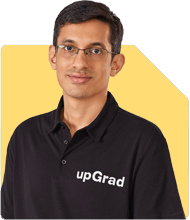B.Tech Environment Graduate Seeking Career Advice: Is Consultancy a Good Long-Term Option?
Nayagam P P |6374 Answers |Ask -Follow
Career Counsellor - Answered on Dec 02, 2024
He started his career as an HR professional and has over 10 years of experience in tutoring and mentoring students from Classes 8 to 12, helping them choose the right stream, course and college/university.
He also counsels students on how to prepare for entrance exams for getting admission into reputed universities /colleges for their graduate/postgraduate courses.
He has guided both fresh graduates and experienced professionals on how to write a resume, how to prepare for job interviews and how to negotiate their salary when joining a new job.
Nayagam has published an eBook, Professional Resume Writing Without Googling.
He has a postgraduate degree in human resources from Bhartiya Vidya Bhavan, Delhi, a postgraduate diploma in labour law from Madras University, a postgraduate diploma in school counselling from Symbiosis, Pune, and a certification in child psychology from Counsel India.
He has also completed his master’s degree in career counselling from ICCC-Mindler and Counsel, India.
... more

Sir I am graduated in 2022 B.Tech(environment) from tier 2 college. After that I was preparing for civil services for 2 years but couldn't clear it. So now I am switching my career in private sector. As of now I joined environment consultancy for initial start (legal work ) but I worried about my future. Is consultancy good for long term growth? I am totally blank. Pls guide me
Follow RediffGURUS to Know More on ‘Jobs | Education | Careers’.
Follow RediffGURUS to Know more on 'Careers | Health | Money | Relationships'.
You may like to see similar questions and answers below
Amit Grover | Answer |Ask -Follow
Answered on Feb 08, 2012
Mayank Kumar | Answer |Ask -Follow
Education Expert - Answered on Jul 18, 2023
Maxim Emmanuel | Answer |Ask -Follow
Soft Skills Trainer - Answered on Mar 23, 2024
Dr Dipankar Dutta |1563 Answers |Ask -Follow
Tech Careers and Skill Development Expert - Answered on Jun 16, 2025
Dr Dipankar Dutta |1563 Answers |Ask -Follow
Tech Careers and Skill Development Expert - Answered on Jun 16, 2025
Dr Dipankar Dutta |1563 Answers |Ask -Follow
Tech Careers and Skill Development Expert - Answered on Jun 16, 2025
Dr Dipankar Dutta |1563 Answers |Ask -Follow
Tech Careers and Skill Development Expert - Answered on Jun 16, 2025
Dr Nagarajan J S K |1065 Answers |Ask -Follow
NEET, Medical, Pharmacy Careers - Answered on Jun 15, 2025
Nayagam P P |6374 Answers |Ask -Follow
Career Counsellor - Answered on Jun 15, 2025
Dr Nagarajan J S K |1065 Answers |Ask -Follow
NEET, Medical, Pharmacy Careers - Answered on Jun 15, 2025
Dr Nagarajan J S K |1065 Answers |Ask -Follow
NEET, Medical, Pharmacy Careers - Answered on Jun 15, 2025
Dr Nagarajan J S K |1065 Answers |Ask -Follow
NEET, Medical, Pharmacy Careers - Answered on Jun 15, 2025
Dr Nagarajan J S K |1065 Answers |Ask -Follow
NEET, Medical, Pharmacy Careers - Answered on Jun 15, 2025























